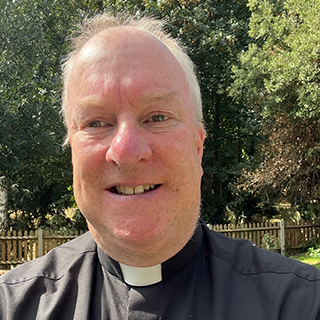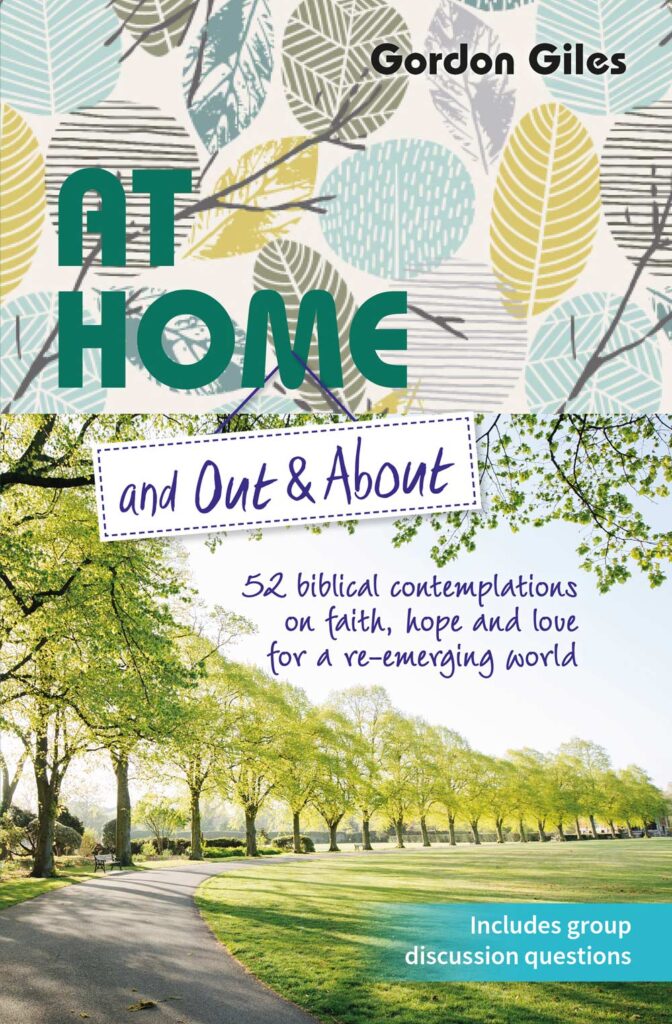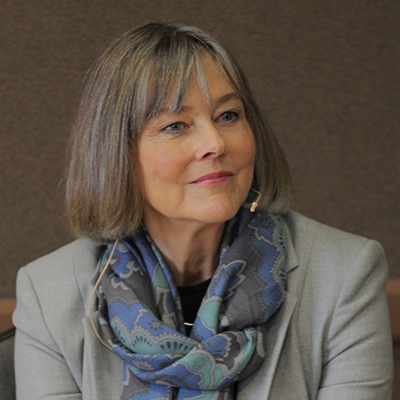Gordon Giles reflects on the deep biblical roots of the coronation rites and the rich symbols of faith that resonate across the centuries from ancient Israel to contemporary Britain.
30 April 2023
Any event in our national life is worthy of spiritual reflection. General elections, political scandals, tragedies or terrorist attacks place our individual lives into a wider context and remind us that there is more to our lives than just our lives.
Royal occasions, whatever our perspective on the existence of royalty may be, loom large in national and international life, and as the theologian Karl Barth was noted for saying, it is good to contemplate with the Bible in one hand and the newspaper in the other. Indeed the Christian life is fundamentally built on the juxtaposition of the two: discipleship involves following Christ through the lanes and alleys of not only personal but national and world life.
We have seen the sad but timely death of Queen Elizabeth II, and now her son is to be crowned Charles III, with his queen, Camilla. He is the 63rd in a long line of monarchs since Egbert, who reigned from 827–39, and we have not seen such an event for 70 years. So we are approaching a momentous occasion.
Meticulously planned, it has its own long history and Christian significance. The coronation is, after all, a liturgical rite, and act of worship in its own right. Many of the traditions, artefacts and activities associated with the coronation have spiritual power and relevance.
‘The coronation is a liturgical rite, and act of worship in its own right.’
A coronation is a spiritual occasion and, like his mother before him, King Charles becomes wedded to the state and to all the nations for whom he is king. It is not a temporary estate; like a wedding, it is intended to last for life. Like a consecration or ordination, it has its roots in the Old Testament consecration of priests and anointing of kings.
Similarly, the Holy Spirit descended on Jesus at his baptism, and that marked him out as God’s Son, chosen to be king of kings, Messiah and Saviour of the world. Consequently the Holy Spirit descends to us all, at baptism, at marriage, at times of need and of healing, and indeed whenever we call upon God.
Biblical echoes
When we notice that the coronation is primarily a liturgical event, at which there is anointing, invocation of the Holy Spirit and a presentation of a Bible, we cannot help but be reminded of the events in biblical history to which these allude and from which they draw their inspiration and precedent.
The three main spiritual aspects of the coronation are ‘the recognition’, ‘the oath’ and ‘the presenting of the Holy Bible’.
The recognition is the part where the new monarch is presented to the congregation and people by the archbishop, not dissimilar to the way in which candidates for baptism or confirmation or ordination are presented to the congregation beforehand. The people affirm and ‘recognise’ him as king, declaring ‘God save the king.’
Then the coronation oath is administered by the archbishop. It will likely be altered to reflect the current realms of which Charles III will be king, but in essence, with his hand on a Bible, he will say:
‘I will to the utmost of my power maintain the laws of God and the true profession of the gospel. I will to the utmost of my power maintain in the United Kingdom the Protestant Reformed Religion established by law.’
‘Significantly, the first thing, among all the paraphernalia of kingship that are given, comes the Bible.’
Then, in common with the ordination of priests, a Bible is given, on this occasion made specially by Cambridge University Press. Significantly, the first thing, among all the paraphernalia of kingship that are given, is the Bible. The Archbishop of Canterbury, Justin Welby, will give His Majesty the Bible with the words:
‘Our gracious king: to keep your Majesty ever mindful of the law and the gospel of God as the rule for the whole life and government of Christian princes, we present you with this book, the most valuable thing that this world affords. Here is wisdom; this is the royal law; these are the lively oracles of God.’
‘The most valuable thing that this world affords – the lively oracles of God.’ These are words to gladden the hearts of BRF.
Veni Creator Spiritus
Then comes the invocation of the Holy Spirit. The ancient Pentecost hymn ‘Veni Creator Spiritus’ is sung. This plainsong hymn is still used today at ordinations, consecrations and coronations, and was possibly written by a king (the grandson of Charlemagne).
Immediately before an anointing it is not only traditional, but also fitting, to call upon the Holy Spirit. It is good, especially at this time, to be reminded of the presence of the Holy Spirit in an event as unusual, as significant and as important as a coronation. Thus the king is anointed, not just as God’s chosen servant, but also as a sign of the indwelling presence of the Holy Spirit in his ministry as king, the formal beginning of which is marked at coronation.
The anointing prayer makes reference to God who ‘didst of old make and consecrate kings, priests and prophets, to teach and govern thy people Israel’ and asks:
‘Strengthen him, O Lord, with the Holy Ghost the Comforter; Confirm and establish him with thy free and princely Spirit, the Spirit of wisdom and government, the Spirit of counsel and ghostly strength, the Spirit of knowledge and true godliness, and fill him, O Lord, with the Spirit of thy holy fear, now and forever.’
‘It is good, especially at this time, to be reminded of the presence of the Holy Spirit in an event as unusual, as significant and as important as a coronation.’
This deeply spiritual activity is sacramental and is done behind a canopy, seen by only the few people involved. It is a moment of humility too – King Charles will change from splendid robes into a simple white shirt for a private, human moment between a new king and the King of Kings. He will be anointed on hands, head and breast.
There are many biblical allusions and references to anointing, the first to the anointing of Aaron and other priests:
‘You shall take the anointing-oil, and pour it on his head and anoint him. Then you shall bring his sons, and put tunics on them, and you shall gird them with sashes and tie head-dresses on them; and the priesthood shall be theirs by a perpetual ordinance.’
Exodus 29:7–9a
Jotham’s parable of the trees (Judges 5:7–15) tells of how the various trees wanted to decide who was king, but tellingly he begins by saying: ‘The trees once went out to anoint a king over themselves’ (Judges 5:7).
Anointing and kingship have a very ancient, spiritual connection, even in this 21st century after the birth of Christ; we cannot have one without the other.
Handel’s choral anthem ‘Zadok the Priest’ is sung, which describes Solomon being anointed king. The text is derived from 1 Kings 1:38–40, which describes the coronation of Solomon, the wise biblical king who succeeded David. The words of Handel’s anthem are slightly different, but describe the event succinctly:
Zadok the priest and Nathan the prophet anointed Solomon king. And all the people rejoiced and said: ‘God save the King, Long live the King, God save the King! May the King live for ever. Amen. Alleluia.’
A calling
Jesus knew about anointing too: when a sinful woman meets Jesus, she anoints his feet with oil and Jesus criticises the Pharisees who think her actions are a wholly inappropriate manifestation of something which should only be done by holy men (Luke 7:36-end). That anointing actually points us forward to Jesus’ ultimate anointing, which does not happen, when the women go to the tomb early in the morning with the intention of anointing his body, only to find him risen.
Anointing relates to consecration and it points to eternity too, and in being anointed King Charles will be marked out as king for life, a vocation to which he is effectively ordained. This is not about being worthy, but about being called.
Anointing with oil confirms that calling and seals the divine deal. Coronations are the events at which the monarch is confirmed, not only as temporal ruler, but, in the biblical tradition of David and Solomon, they are also welcomed, prayed for, anointed and acclaimed as agents of God. Monarchs in this tradition have a religious as well as human power invested in them.
‘Coronations are the events at which the monarch is confirmed, not only as temporal ruler, but, in the biblical tradition, they are also welcomed, prayed for, anointed and acclaimed as agents of God.’
It is important to note the order of events, because it is only after this anointing that the symbols of power are presented: the spurs, sword, armills (golden bracelets of sincerity and wisdom), royal bracelets and stole and robes, and the orb. Then the ring and the sceptre are given, and almost last, the rod with a dove on it. The dove is a symbol of the Holy Spirit, and in this case it is conspicuously associated with mercy, equity and peace.
Only then, to crown it all, is the crown given. Then the first thing that the newly crowned monarch does is receive Holy Communion as a sign of his dependency on God.
We are all heirs…
The Holy Spirit of the same God descended upon a confused group of bereaved men and women in a hideaway room at Pentecost. We shall mark that event soon as we do every year.
For by the descent of the Spirit, we are all heirs to the kingdom that God our king brought into being by sending his son who died and rose again for us.
Spiritual kingship is a great mystery that involves the high and the humble. Kingship is a leveller, for in it, all are equal, all are entitled. Charles III’s kingship is a special kind, and gives him temporal powers and a special role, but it is a variation on the kingship that all who inherit the kingdom of God shall share.
It is so easy to miss the presence of the Spirit in our lives – and yet also sometimes so easy to feel the spirit moving, particularly on special occasions. We involve God, by praying God to consecrate our kings and queens, and to bless our weddings and be present at our baptisms, and we thereby acknowledge that he is the true God and king and that Jesus Christ is his prince, the prince of peace and of joy and love.

Gordon Giles is canon chancellor of Rochester Cathedral. He is the author of several books and the editor of BRF’s New Daylight Bible reading notes.

At Home and Out and About
Across a year’s worth of weekly reflections, Gordon’s latest book focuses on objects, scenes, activities and places, drawing out spiritual insights to help us reflect on what we have learned as we venture out again after months of restriction, absence and anxiety. From Easter, through the changing seasons to the following Easter, we are led to consider: What is it like spiritually to stop wearing masks? What does a beach say to us after coronavirus? How has Zoom affected us during lockdown and how do we now relate to technology as a medium of fellowship? Where is Christ amid our restrictions and our releases?

Debbie Thrower honoured in Portsmouth Diocese
It was announced this week that Anna Chaplaincy pioneer Debbie Thrower has been appointed as a canon of honour at Portsmouth Cathedral and will be installed at a special service next month. Bishop Jonathan Frost said in his formal letter to Debbie that this invitation ‘reflects the profound appreciation of the Diocese of Portsmouth for the way in which your visionary ministry, through Anna Chaplaincy, continues to impact and renew our life together in Christ.’
Pray with us…
In words of this prayer, specially written for the coronation by Martyn Payne:
High King of heaven
who came alongside us
in the humility of Christ Jesus,
anoint Charles, your chosen servant,
with your grace and blessing,
that during his reign
our country might be a place
of peace and reconciliation,
of justice and compassion
for all people.
To the glory of Your name.
Amen.
